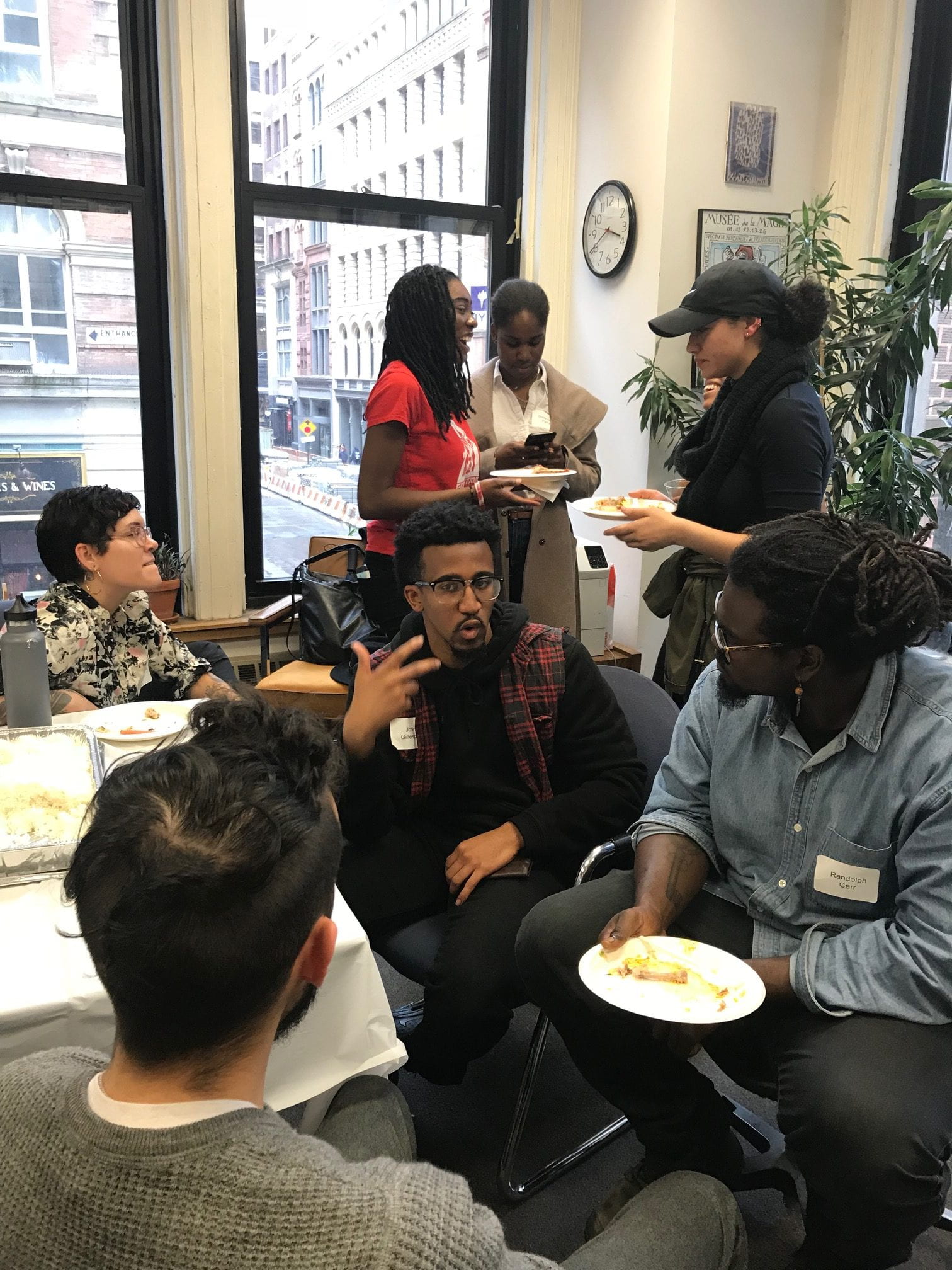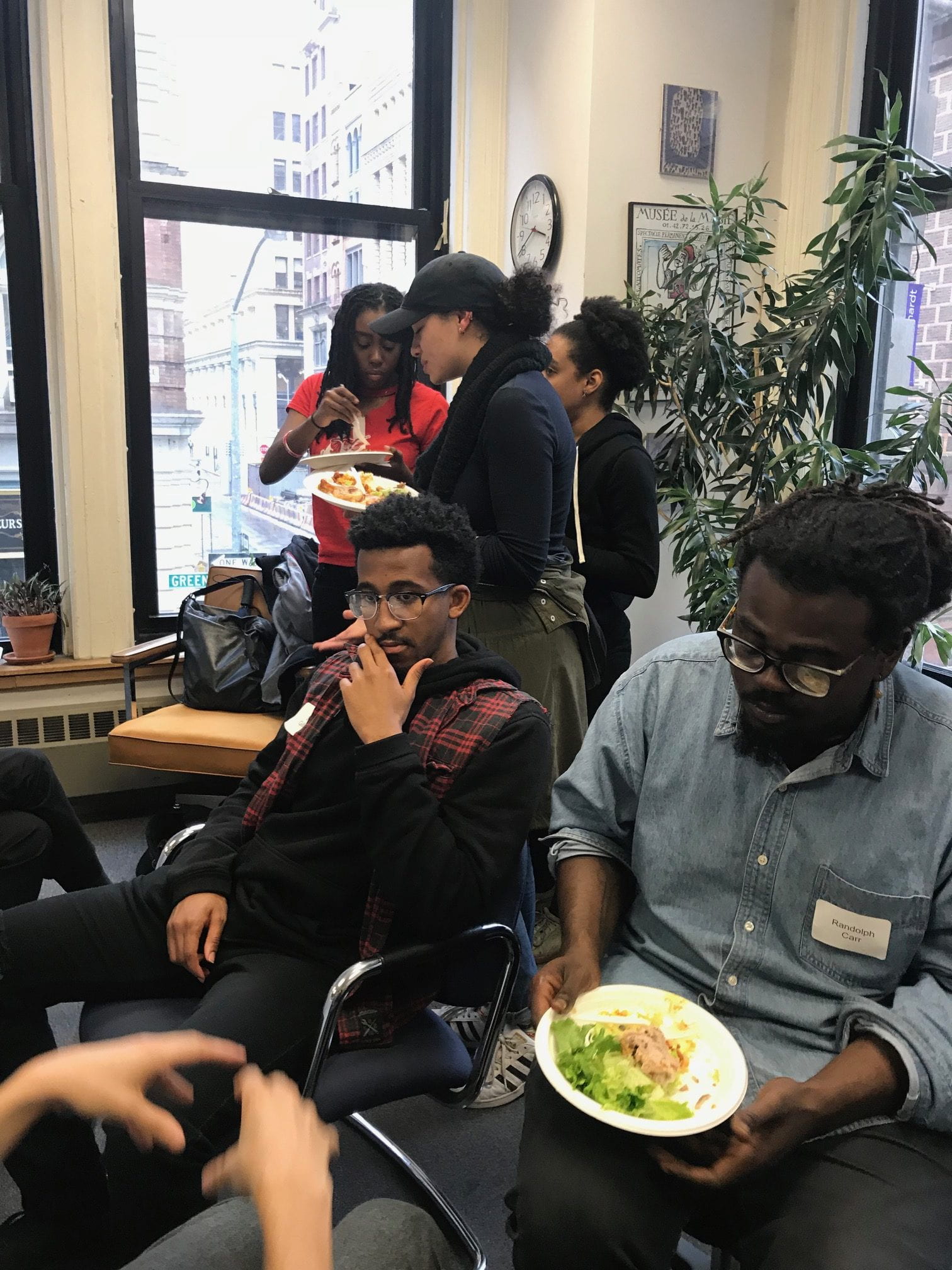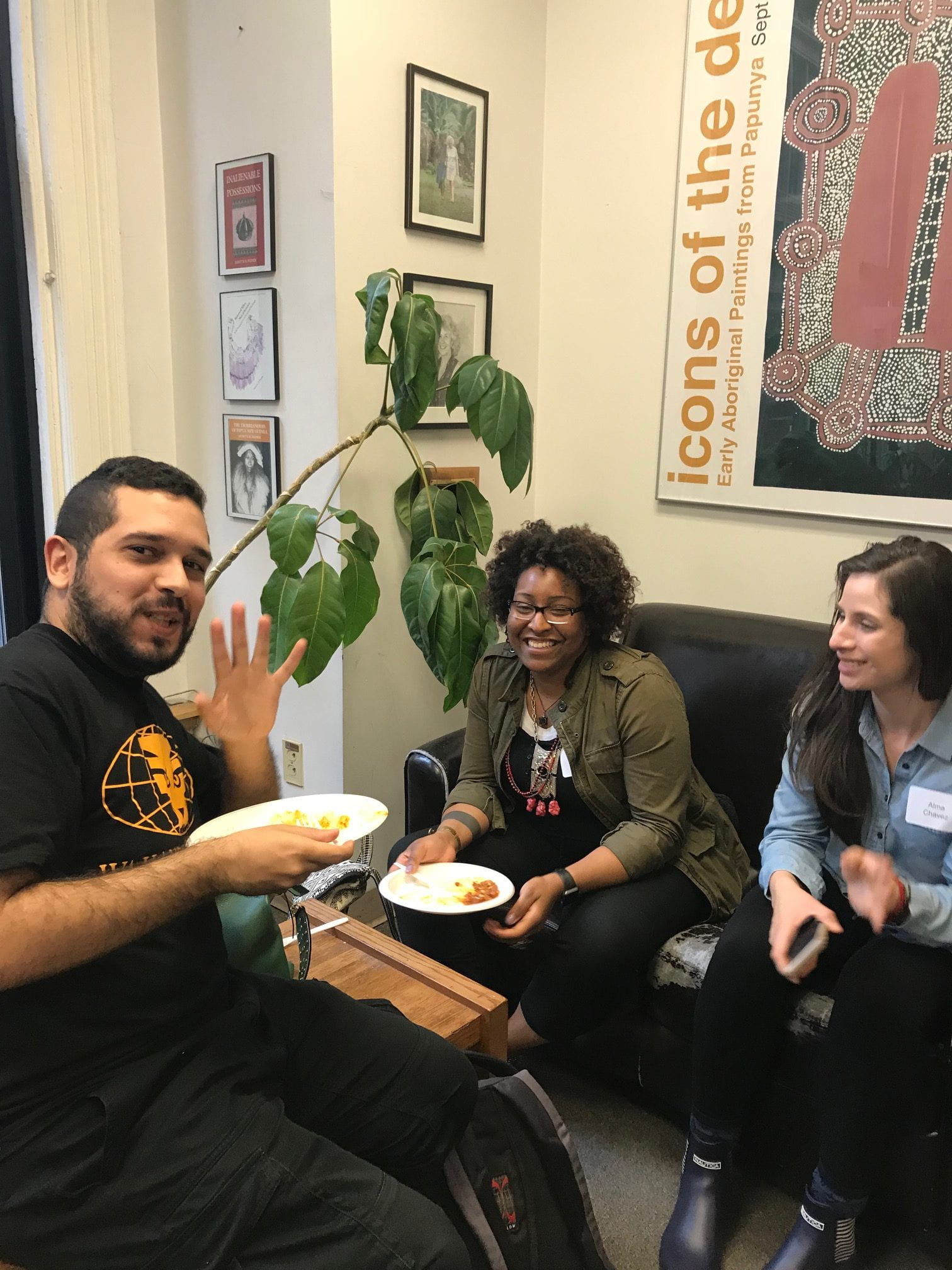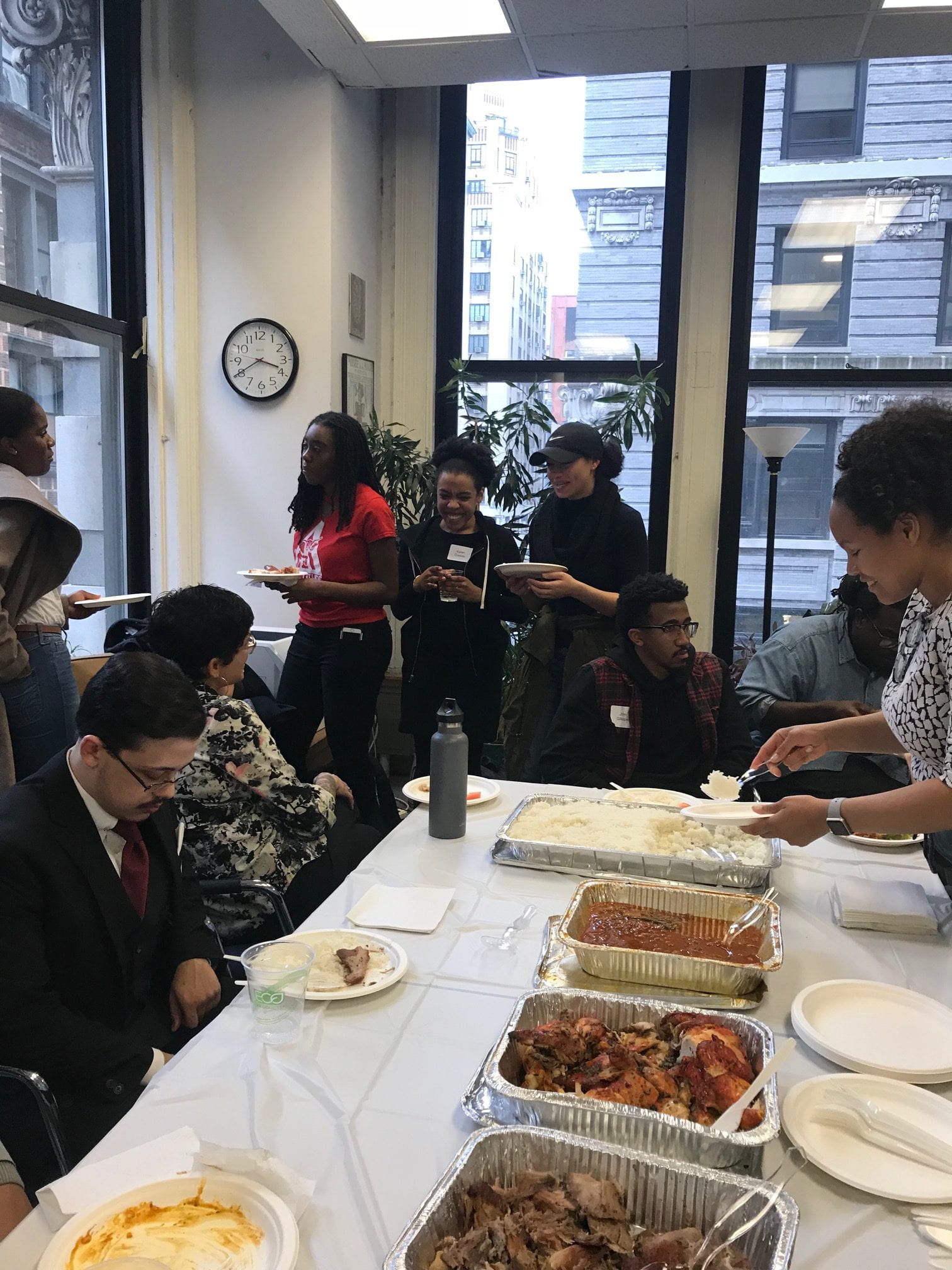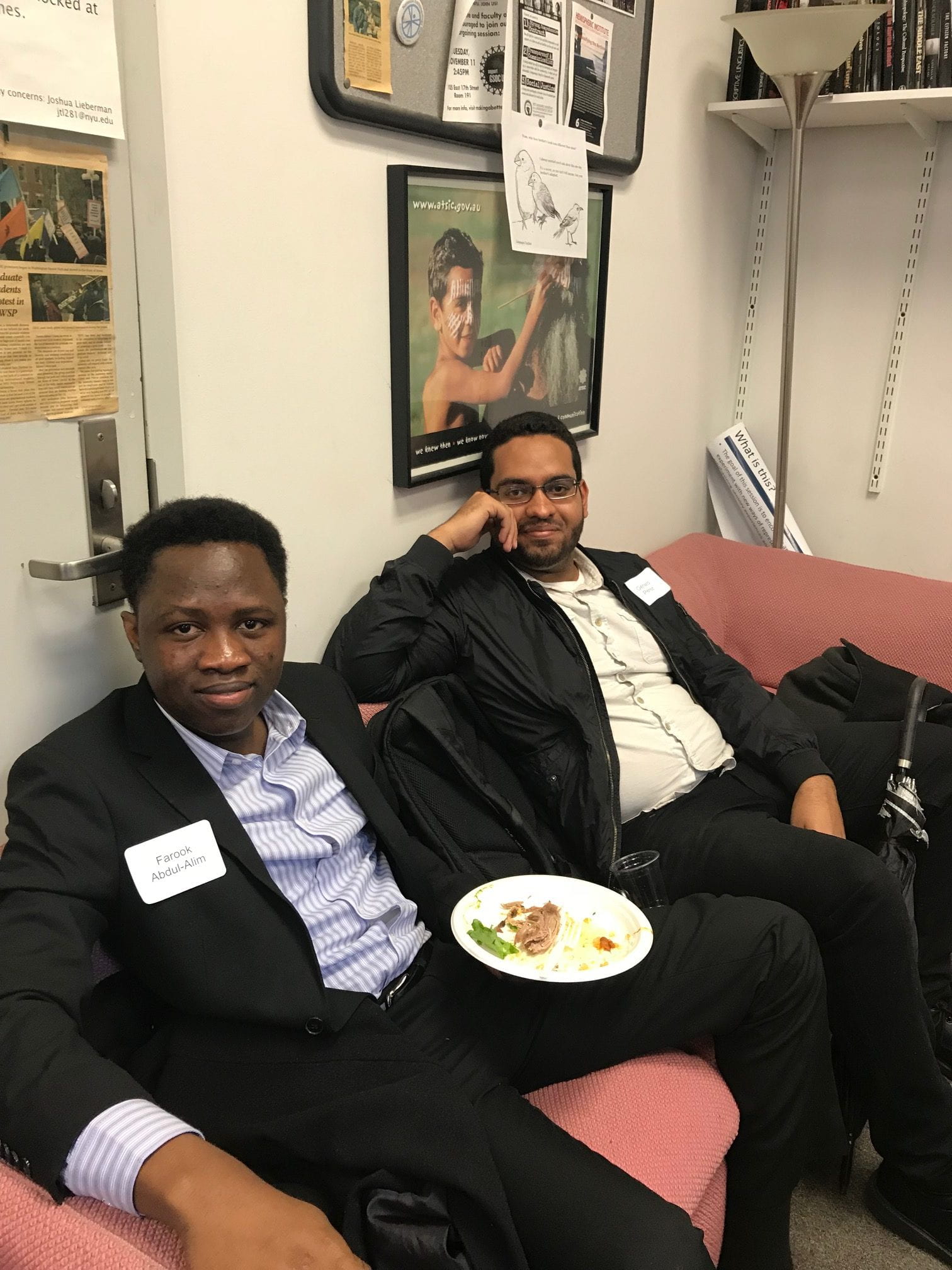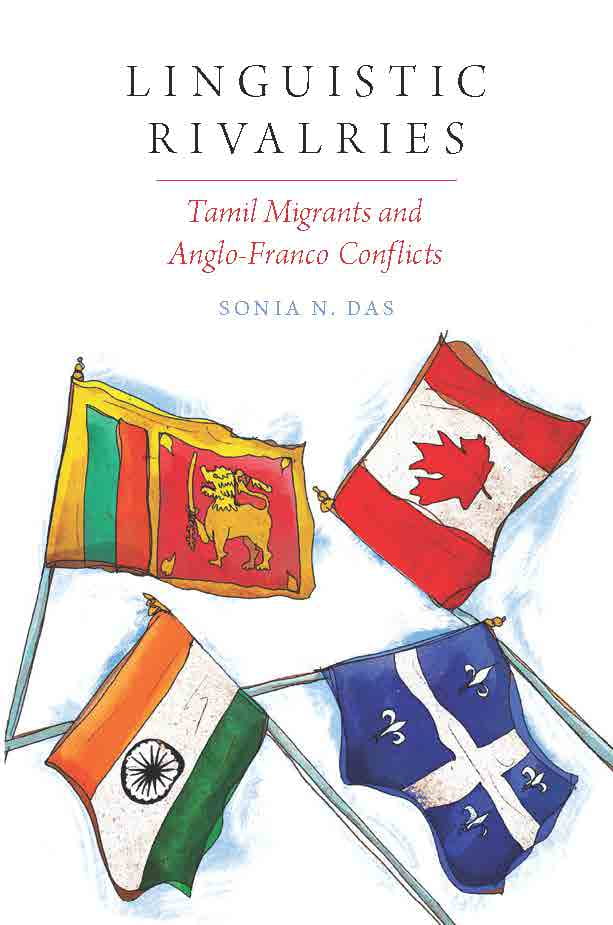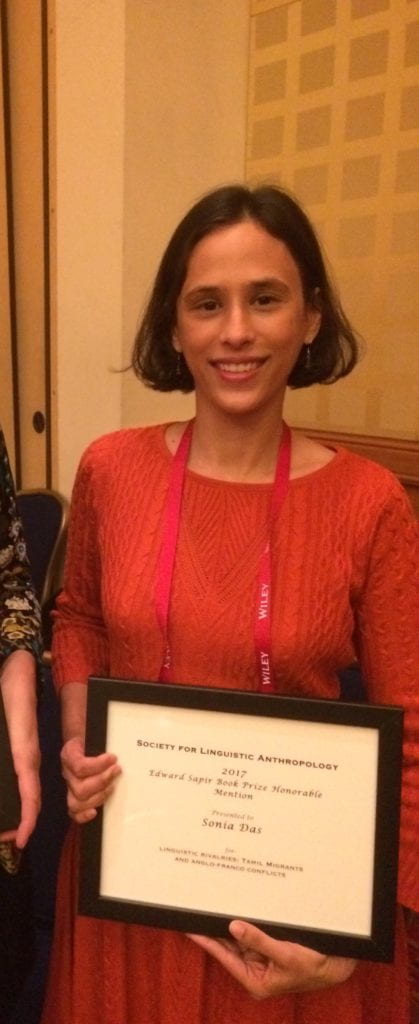On Friday, March 30, twenty prospective anthropology Ph.D. program applicants of color assembled at NYU’s Department of Anthropology for a full day workshop on successful applications to doctoral program. This is the second year of the initiative, Anthropology in Color, which is organized by the NYU Department of Anthropology’s Diversity Committee. Participants gave feedback that the workshop left them much more aware of how and why to apply for Ph.D. level training in anthropology; as one prospective applicant said, “I learned more in one day about applying for a doctorate than I learned in four years of college!”
Category Archives: Conference
Linguistic Rivalries Receives Edward Sapir Honorable Mention
Congratulations to Sonia Das, whose monograph Linguistic Rivalries: Tamil Migrants and Anglo-Franco Conflicts (Oxford University Press 2016) was awared the Edward Sapir Book Prize Honorable Mention at this year’s American Anthropological Association conference. For more information about Sonia’s research, please check out her faculty profile.
DACA-mented, Undocumented, and Temporary Protected Status Students and Allies
Without congressional action, the Deferred Action for Childhood Arrivals (DACA) program will expire on March 5, 2018. We do not know what the results of congressional debate will be for DACA or how these will influence other immigration issues and statuses. The Anthropology Department’s goal is to support you during this uncertain time. NYU will continue to support undocumented students, staff and faculty. If you are or someone close to you is undocumented or have DACA or temporary protected status, please know that there are many things you can do before March. The following link provides practical steps you can take as well as connections to NYU immigrant defense initiative which can help with legal advice and referrals (http://as.nyu.edu/anthropology/undergraduate/resources/daca-students.html). NYU provides additional information and resources for students here. We want to remind you during these disconcerting times that you are a valued member of our community.
Anthropology in Color
The Department recently hosted, ‘Anthropology in Color’ an all day pipeline workshop sponsored by GSAS. We received more than 40 applications and brought in 20 undergraduates from area schools as well as DC, CT, Texas and South Carolina. The day featured a workshop and networking event on grad school, the application process, departmental research and more! Thanks to all the Faculty, Staff and Students who participated.

TOWARDS DYSTOPIAN DEMOCRACIES IN EUROPE AND THE USA? FROM PREJUDICE IN IMMIGRATION POLICIES TO MASS SURVEILLANCE IN COUNTERTERRORISM OPERATIONS

OCTOBER 22, 2015, 6:30 pm – 8:30 pm
New York University
Lipton Hall
108 West Third Street, New York, NY 10012
RSVP to vd526@nyu.edu by October 20.
From the conference bulletin: “Developments of democracy in Europe and the USA have followed mutually influencing paths over the past two centuries. From the declarations of rights to the establishment of democratic institutions after WWII, these regions have built their governments on the foundation of human rights protection. These foundations have now been weakened by the responses to a number of challenges, in particular immigration and counter-terrorism. The influx of migrants and asylum-seekers, from Africa and the Middle East to Europe and from Central and Latin America to the USA, are being met with a combination of repressive measures: walls and fences, naval military operations, laws criminalizing undocumented immigration, racial profiling, insufficient integration policies, to mention a few. Populist and xenophobic parties have fuelled racist resentment towards Muslims and immigrants in general and have encouraged hate speech and crimes. At the same time, the USA and Europe are increasingly engaging in counter-terrorism operations in a way which is straining the democratic fabric of our society. Some of these measures have a disproportionate impact on ethnic and religious minorities, thus further polarizing societies. Governments and policy makers, claiming the incompatibility of security with human rights protection, are adopting laws and policies, which increase the powers of security services without guaranteeing the checks and balances necessary in a democracy. Ultimately, such policies contribute to the erosion of democratic core values on both sides of the Atlantic and play in the hands of populist parties and of those who promote antidemocratic causes.
For more information about this conference, please download this promotional flyer.
North American Theoretical Archaeology Group 2015 Conference

The North American TAG meeting will take place on May 22-24 at New York University! The theme of this year’s conference is MOVEMENT. The conference committee has received a number of wonderful session proposals, and they are now accepting titles and abstracts for individual papers and presentations.
The deadline for submissions of paper titles and abstracts is 28 February 2015. Abstracts should be submitted to pc4@nyu.edu.
For more information about the conference, please click here.
Noelle Stout to Speak at Queering Anthropology Conference

Dr. Noelle Stout will be speaking at this year’s Queering Anthropology conference, to take place from February 12-14th at Yale University in New Haven, Connecticut. Dr. Stout will be speaking on Friday (First Books/First Chapters) and Saturday (No Queer Futures).
For more information about this exciting conference, please download the program here.
Noelle Stout to Present at Approaches to Capitalism Workshop at Stanford University
Noelle Stout to Present at Approaches to Capitalism Workshop at Stanford University on April 10 at 4pm!
Drawing on ongoing ethnographic research in the Californian Central Valley, Professor Noelle Stout presents research-in-progress which suggests that homeowners’ encounters with loan modification programs are profoundly reshaping the social institution of mortgaging. Professor Stout advances a perennial anthropological inquiry regarding credit-debt relations: what role does unpaid debt play in fostering social obligations? By applying models of debt formulated in so-called gift economies to a late-capitalist cultural milieu, this research shows how obligations between people remain central to financial markets, which are often characterized as devoid of mutuality.

